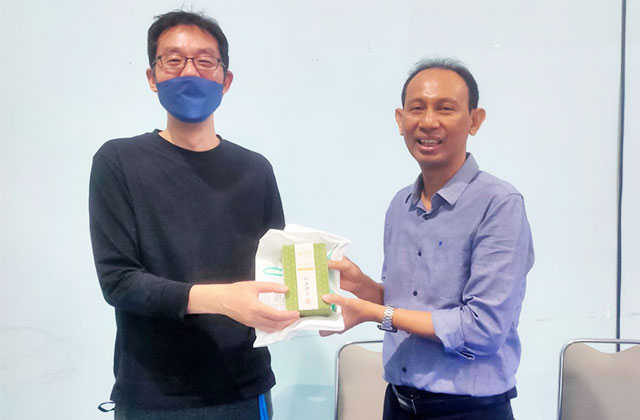The Faculty of Medicine Unram Held Training on Capacity Building of Researchers and collaborated with Tricycle ESBL-EC

Mataram, The University of Mataram – The Faculty of Medicine University of Mataram and the Tokyo Japan National Research Institution marked the initiation of the ESBL-Ec Tricycle collaboration research that is AMR Research Center NIID. The training on Research Sample Examination Techniques was carried out from July 8-13, 2023 at the Faculty of Medicine Unram laboratory. The coaching team that attended was Sizuo Kayama, Ph.D., Liansheng Yu, Ph.D. and Wataru Hayashi, Ph.D.
Dean of Faculty of Medicine Unram, Prof. Dr. dr. Hamsu Kadriyan said that this collaborative research is a form of implementation of the Memorandum of Agreement (MoA) signed by the Rector of Unram and the Director of AMR-RC in Tokyo on March 12, 2023.
“This activity is one of the supporting activities for the Internationalization of Faculty of Medicine Unram, in addition to the opening of the Faculty of Medicine International class program in 2023”, he explained.
The head of the Tricycle research team of Faculty of Medicine Unram, Dr. dr. E. Hagni Wardoyo, Sp.MK(K) said that this collaborative research is also a continuation of the postdoc fellow research concerned under the supervision of Prof. Motoyuki Sugai, Ph.D at The National Institute of Infectious Diseases (NIID) Japan 2022-2023.
NIID as a collaborating partner of the World Health Organization (WHO) has a responsibility in supporting the implementation of One Health research. Countries in Asia Pacific that pioneered collaborative research in the ESBL-Ec Tricycle are Indonesia, Vietnam and Malaysia.
This collaborative research program will take place in the next 3 years. The members of the Faculty of Medicine Unram research team are Dr. dr. Metta Octora, Sp.MK, dr. Dewi Suryani, M.InfectDis, Rosyunita, S.Si., M.Si, Zaid Algifari, S.Si., M.Si and the collaborators are dr. Saidatul Hayati Sp.MK and dr. Baiq Dewi Prepti Anggriyani, Sp.MK.
Faculty of Medicine Unram hopes to be a valuable contributor to WHO Surveillance research and to develop policies to control antimicrobial resistance in human communities, farms and agriculture as well as hospitals.
